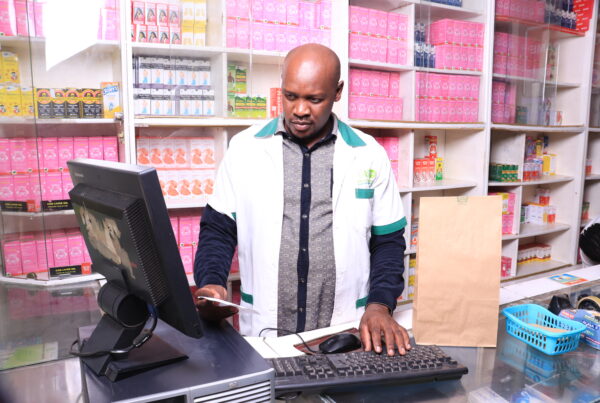Digital health infrastructure and uptake are part of our mission at the HealthTech Hub Africa (HTHA), to support African governments in tackling their most pressing health issues, especially those faced by low-income and underserved populations. Since 2022, we have supported about 68 organizations and worked with almost all East African countries.
HTHA is always intrigued by digital health companies that are striving to empower the health system, particularly in the African region. East Africa is experiencing a significant technological shift as digital health infrastructure becomes more integral to the healthcare system.
Many countries in the region are embracing electronic medical records, mobile health applications, and telemedicine services, aiming to increase healthcare access and efficiency. The uptake of these technologies varies across different nations, influenced by factors such as government investment, private sector development, and consumer readiness to adopt new health tech solutions.

The evolution of digital health in East Africa is largely driven by the need to overcome widespread challenges such as limited access to healthcare facilities, shortages of healthcare professionals, and the burden of communicable and non-communicable diseases. With the rise of internet penetration and mobile phone usage, the public’s demand for digital health services is increasing, prompting governments and organizations to invest in e-health initiatives.
In this article, we examine the current state of digital health infrastructure in East Africa, by looking at some of the innovative healthtech startups that are reshaping the healthcare industry in East Africa and significantly improving the lives of millions.
Existing Digital Health Companies in East Africa
Access to healthcare is a fundamental need for every individual, and in East Africa, health tech startups are reflecting that by introducing innovative solutions that improve access for traditionally underserved populations. Some of the companies that we can highlight include:
- AfyaRekod

Location: Nairobi, Kenya
There are still regions in East Africa where health data is recorded using pen and paper and stored in files that can only be accessed when going to the hospital. This poses a challenge to medical practitioners when trying to access patient data in emergency cases. Startups like AfyaRekods were started to solve these issues.
AfyaRekod is a digital health platform that enables individuals to store and manage their health information, connect with doctors, access reliable health resources, and utilize wellness tools. It helps bridge the gap between healthcare and treatment for healthcare institutions, improving the efficiency of these health systems.
2. Zuri Health

Location: Nairobi, Kenya
Healthtech startups are transforming healthcare systems by streamlining providers’ operations, reducing administrative burdens, and freeing up more time to focus on patient care.
Zuri Health is a telehealth company that aims to provide affordable healthcare services to African countries. It offers a digital platform allowing healthcare providers to manage patient data, schedule appointments, and communicate with patients wherever they are. This type of technology streamlines workflows, improving efficiency and reducing costs
3. EDEN CARE

Location: Kigali, Rwanda
Going by their slogan, ‘Welcome to healthier, happier health insurance,’ Eden care offers a wellness app that provides personalized health recommendations and tracks progress towards health goals. This type of technology helps patients become more engaged in their own care, leading to better health outcomes.
It operates a digital platform that simplifies the health insurance process, making it easier for individuals to understand, select, and manage plans.
4. Medikea

Location: Tanzania
One of the most significant impacts of healthtech startups is improving patient care access. Telemedicine platforms, such as Medikea, allow patients to consult with doctors from their phones, eliminating the need to travel to a medical facility. In addition to that, it offers video consultations and chat services with trusted doctors from the user’s phone. This particularly benefits patients in remote areas or those with mobility issues.
5. Babylon Health Rwanda


Location: Kigali, Rwanda
Babylon Health opened in Rwanda as Babyl on its mission of providing accessible and affordable healthcare services to everyone on Earth. Babyl is now Rwanda’s largest digital health service provider. It was the first country outside the UK to receive services from Babylon Health. It is allowing every Rwandan to be able to get healthcare using technology and without struggling.
Through these and other initiatives, digital health companies are propelling East Africa toward better healthcare services, demonstrating the transformative potential of technology in the health sector. The impact of these companies is profound, yielding increased efficiency in healthcare services, improved access to care, and empowerment for patients to take charge of their health. By embracing digital innovation, East Africa is building a more resilient and responsive healthcare infrastructure.
In conclusion, investing in digital health infrastructure is crucial for the future of healthcare in East Africa. Such investments result in enhanced service delivery, improvement in overall healthcare system efficiency, and better patient outcomes. While challenges like internet connectivity, digital literacy, and funding still exist, they also present opportunities for innovation and partnerships. These challenges provide a chance to develop sustainable solutions tailored to the East African healthcare context.












